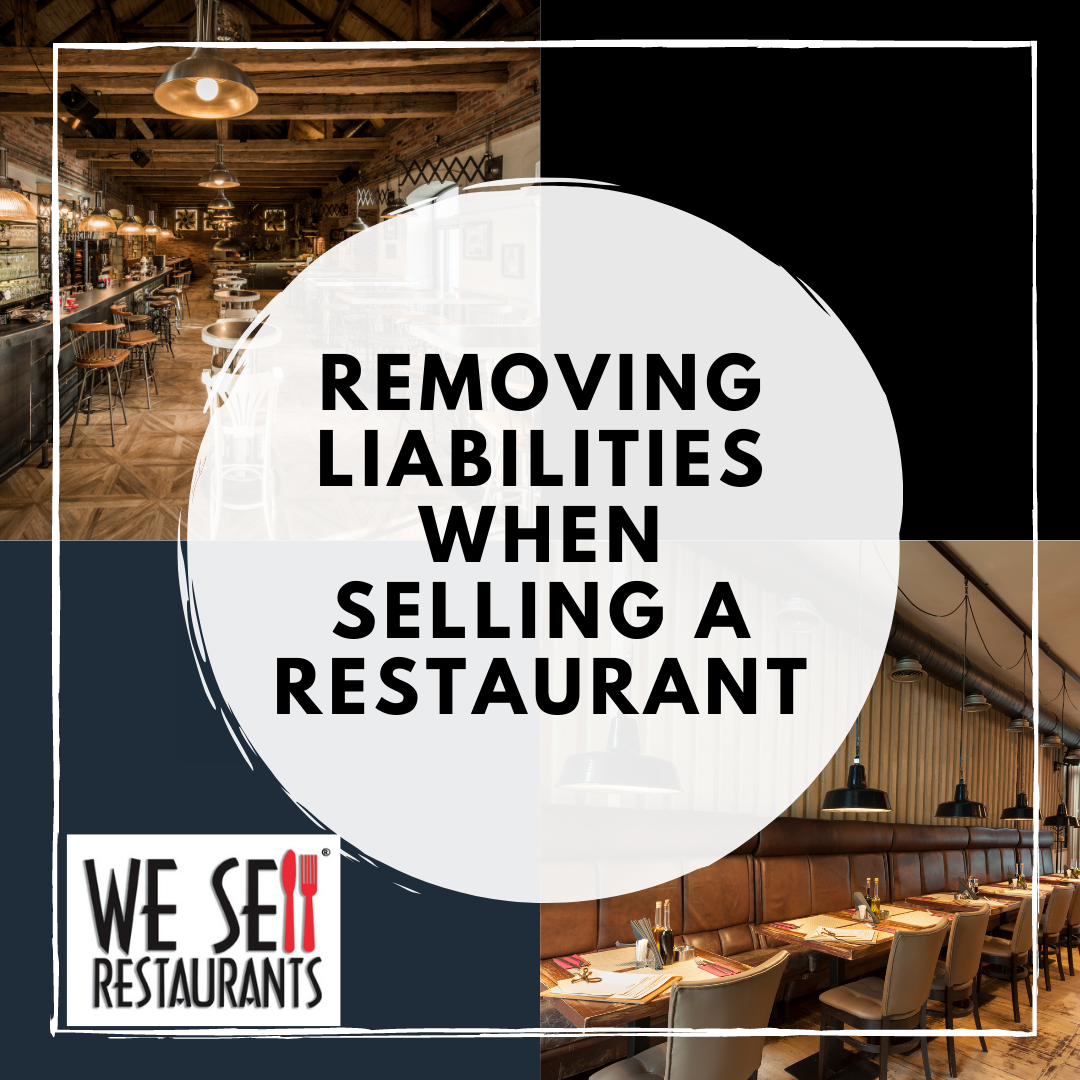As restaurant brokers, we see many sellers focus intently on a single piece of the puzzle when selling a restaurant – the selling price. They overlook items that are potentially even more important, the liabilities that still attach to them once the new buyer takes overs. Here are the most common liabilities anyone selling a restaurant should make sure are carefully covered in the transaction.

Remaining liability under the lease.
It is not uncommon for a landlord to require that a seller stay on the lease as a guarantor even after the location changes hands.
The easiest way to avoid this is to negotiate the terms up front, something these Restaurant Brokers do frequently with our clients. You negate the issue of ongoing liability by making sure the language of the lease allows for consent and transfer of liability any time the lease is assigned. Landlords are not huge fans of these clauses but the point at which you have the most leverage to initiate language like this is when the lease is initially signed. At that time, it is smart to make sure that if a new assignee meets specific criteria such as: franchise approval or net worth equal to or greater than the current tenant or with specific liquidity ($150,000 for example), than that guaranty is substitute for the guaranty of the new tenant.
If you did not include this language up front than you, or your restaurant broker, are left with negotiating with the landlord to release you from the lease. We are often successful in retaining a tenant on the lease only for the initial term without liability for any subsequent terms or option years. That reduces the liability for a seller into a finite time frame. For example, on a five-year lease, with two years remaining the maximum liability under the guaranty would be 24 months of lease payments. Assuming that any buyer is going to make it at least six months, your liability range reduces to 18 months.
If you have remaining liability under the lease for a finite period, your restaurant broker can connect you with a strong attorney who can craft a personal indemnification. That language can include the ability for you to attach to assets of the buyer in the even of a lease default. If the buyer has strong assets, this is an option worth pursuing. An indemnification is also sometimes known as a “wraparound” because it “wraps around” the lease language to provide protections to the seller in this situation. An attorney can provide you with a full understanding of exactly how to protect your interests from liability in this matter. While the lease is one matter of remaining liability after selling a restaurant, it is not the only form of ongoing financial responsibility that should be addressed.
PPP Loans
The Paycheck Protection Program or PPP assistance offered by the government as a results of the COVID crisis has resulted in several owners finding themselves with liens that must be satisfied and ongoing liability for their restaurants. The PPP loans are eligible for forgiveness by the lender, but this requires that that the seller file the appropriate paperwork and be provided with a forgiveness document. Otherwise, this liability is outstanding. Based on the most recent guidance from the SBA, this must be escrowed at closing before a restaurant may sell. While there was previously a hold upon seeing the forgiveness take place, we have seen many owners seek and receive forgiveness on these funds in recent weeks. If you are selling a restaurant, our recommendation is to file immediately for forgiveness which means this liability is automatically expunged and nothing is taken from the closing to satisfy this amount.
Bank Loans (SBA, EIDLP or otherwise)
Lenders, SBA and otherwise, including loans processed the EIDLP program as a result of the COVID crisis result in liens against the business. This is an ongoing liability and will be picked up as part of the lien search performed by the closing agent when you are selling a restaurant. In order to deal with these liabilities, it is important to disclose all the material facts to your restaurant broker. The last thing you want to do is get to the closing table and bring money to finalize the transaction. You will need to contact each lien holder for a payoff. If you have assets other than the business, it is possible to get the lenders to attach liens to alternate assets so the business can still transfer free and clear. It is sometimes possible to do a workout on the loan and negotiate with the lender for a smaller amount and a deficiency judgement. Banks want to make deals like everyone else. They have shareholders and balance sheets they need to satisfy. It may be possible to work through the issues on these loans but only if you confront the issues head on and begin solving them as math problems, one step at a time.
Overall, it is possible when selling a restaurant to see more liabilities for you as an owner than benefit in transferring the assets. If you can remove any remaining liabilities however, you are able to move to the next phase of your life unencumbered by them.
If you need help in removing liabilities, contact the Restaurant Brokers at We Sell Restaurants. Our knowledgeable and experience team is standing by to assist.
Read also, Selling a Restaurant - 10 Things a Restaurant Broker Does to Get to Closing.

Robin Gagnon, Certified Restaurant Broker®, MBA, CBI, CFE is the co-founder of We Sell Restaurants and industry expert in restaurant sales and valuation. Named by Nation’s Restaurant News as one of the “Most Influential Suppliers and Vendors” to the restaurant industry, her articles and expertise appear nationwide in QSR Magazine, Franchising World, Forbes, Yahoo Finance, and BizBuySell. She is the co-author of Appetite for Acquisition, an award-winning book on buying restaurants.

 404-800-6700
404-800-6700









